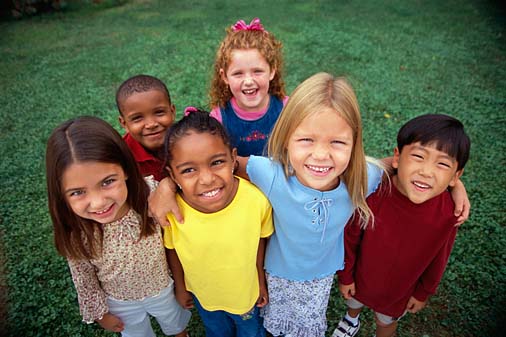It is never too early to start talking to children and teaching them about tough issues. Positive and open attitudes about race need to be taught to young children. Taking a color-blind approach by teaching your children to treat everyone equally is not enough. This does not adequately capture the complex systemic racism issues and their historical context in our country. It also does not capture the developmental reality that children notice race differences in infancy before they even have the language to discuss it. We cannot expect our children to be adequately prepared to face issues of which they are not fully aware. Talking about race openly has been shown to be associated with more positive and open attitudes. Important points to consider in raising race conscious children and having conversations with your children at any age:
Teach children about different races and cultures– this does not create racism but rather actually does the opposite. It sets the stage for curiosity, tolerance, acceptance and self-awareness
Teach children that race affects how people are treated– this captures the reality of what struggles people face and prepares them to do something about it.
Point out instances of discrimination when you see them- whether in real life, social media, TV or movies and use them to guide conversations with your children.
Look for examples of white privilege- explain the concept and how it shows up in your life and your children’s lives.
Work hard at your own self-awareness- aiming to understand your own biases, how and when they show up, and even when they are there when you might not realize it. Aim to be aware of your own impact on others.
Be a role model– by asking about your impact on others and being receptive to the feedback you are given. Role model taking accountability for your own mistakes.
Answer questions openly- be open and honest, including when you do not have answers.
Have toys in your home that represent diverse races and cultures– for your child to play with. This sends the message that diversity matters.
There are great children’s books that can help you navigate these waters. Go beyond having books that show diverse images and make sure to have books for your children that discuss important historical figures and moments in history. Visit these links for lists of children’s books:
- Anti-racist books for babies and toddlers: https://www.babylist.com/hello-baby/antiracist-books
- 21 children’s books to spark important discussions about race + tolerance: https://www.mother.ly/child/best-childrens-books-about-race-and-tolerance
If you do not feel prepared to start these conversations take some time to educate yourself first. Thinking ahead of time about what you want to say, how you want to say it, and expanding your understanding of the issues at hand will better prepare you for those conversations.
Your conversation does not have to be perfect, you do not have to have all the answers, and it can be an evolving and ongoing conversation as you and your children grow.
References/Resources:
Raising race conscious children– http://www.raceconscious.org/
Resources you’ll need for raising an anti-racist child- https://mashable.com/article/raising-an-antiracist-child-resources/
Talking with children about current events: Starting conversations about racism, violence, and justice by Balaguru, S & Breidenstine, A –https://docs.google.com/presentation/d/1tMxjMLc9HD2b8GKNrAZMb2A5IQ6Xa0w7puUB0CiTR4E/edit#slide=id.g88df4116b5_0_80
Talking to your children about race, racism, and the current political movement by Mattingly, J https://drive.google.com/drive/folders/1ZvHbrPWPbVhqI6i00gnMeYKR7OAUcLRw










